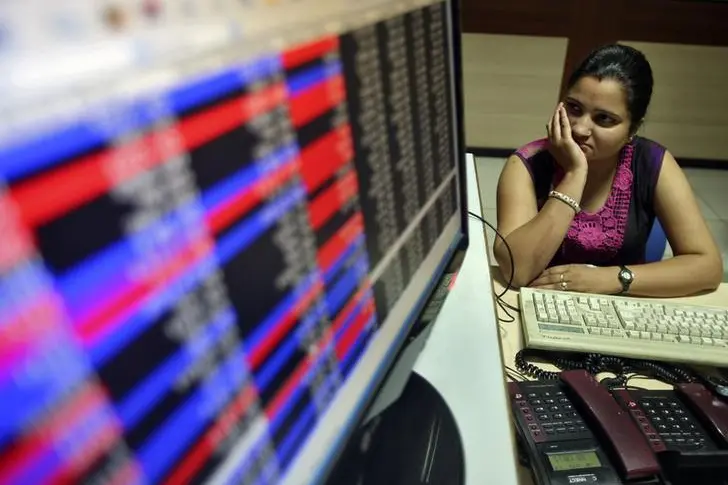PHOTO
BENGALURU - Foreign portfolio investors (FPIs) bought Indian stocks worth 362.38 billion rupees ($4.4 billion) in November, marking the second best month of overseas inflows into equities this year, data from the National Securities Depository Ltd showed.
The surge in inflows comes at a time when Indian shares rose to record highs. The benchmark Nifty 50 and Sensex indexes added 4.1% and 3.87%, respectively, in November.
Last month's foreign inflows into stocks trailed only those in August, when FPIs purchased 512.05 billion rupees.
Analysts said that foreign interest in domestic equities would continue due to India's favourable fiscal policies, growth outlook and moderation in inflation.
"India will be one of the first economies that will start cutting rates once inflation cools off over the next few quarters," said Mayuresh Joshi, head of equity research at investment advisory firm William O'Neil & Co.
NOVEMBER SHOPPING
Financial services stocks were the top of the pick for FPIs at 142.05 billion rupees, followed by fast moving consumer goods (39.56 billion rupees), information technology (38.59 billion rupees) and automobile and auto components (30.51 billion rupees).
The Nifty Bank index added 4.66%, while the Nifty FMCG index rose 2.8% in November. The Nifty IT index surged 5.79%, extended gains into the second month.
"There are no other sectors other than information technology and banking where there is such high earnings visibility and clear conviction of growth uptick," said Yogesh Nagaonkar, founder and CEO at Rowan Capital Advisors.
Nagaonkar added that foreign fund inflows could further rise on hopes of moderation in the Federal Reserve's rate hike cycle.
William O'Neil's Joshi said outperformance in the banking and financials sector was driven by steady outperformance in earnings.
He noted that the sustenance of interest in consumption-oriented segments like FMCG would depend upon the pace of rural demand recovery.
($1 = 82.3630 Indian rupees)
(Reporting by Bharath Rajeswaran in Bengaluru; Editing by Saumyadeb Chakrabarty)




















